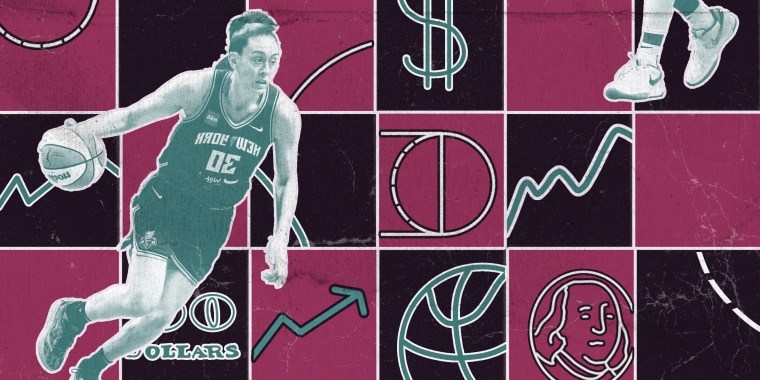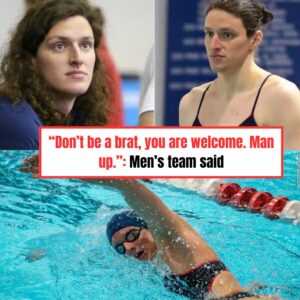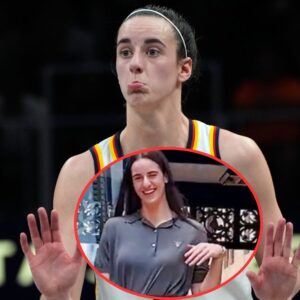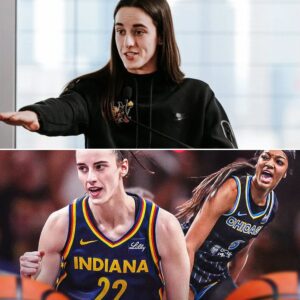“Challenges in Bridging the Financial Gap: The Caitlin Clark Effect on the WNBA’s Economic Landscape”
Entering the WNBA as a rising star, Caitlin Clark’s impact reverberates throughout the league, marking a significant shift in the women’s basketball landscape. Following her standout performance in the NCAA women’s Final Four, Clark’s selection as the first overall pick in the WNBA draft garnered immense attention, contributing to record-breaking TV viewership comparable to major league drafts. The Indiana Fever, her new team, experiences unprecedented demand for tickets, while her jerseys sell out rapidly, signaling a surge in fan interest. Despite these positive indicators, the WNBA grapples with enduring financial challenges, underscoring the stark disparity in compensation between male and female athletes.
Hall of Famer Nancy Lieberman emphasizes the urgency for improvement, acknowledging the current inadequacy of the WNBA’s financial framework. Negotiating new agreements among players, the league, broadcasters, and other stakeholders will be pivotal in reshaping financial dynamics. However, WNBA players remain bound by the terms of the collective bargaining agreement signed in 2020, constraining their earning potential.
While the WNBA’s revenue has seen growth in recent years, it still falls significantly short of the NBA’s substantial earnings. Reports suggest a revenue projection of $180 million to $200 million for the WNBA’s upcoming season, highlighting the vast contrast with the NBA’s multibillion-dollar revenue stream. This stark difference underscores the challenges in achieving equitable compensation for WNBA players, with rookies like Clark earning a base salary of just $76,000, further highlighting the need for systemic reform within the league.

While Caitlin Clark stands to earn additional income from lucrative sponsorship deals and performance-based bonuses, as well as marketing arrangements with her team and the league, her potential earnings still pale in comparison to the NBA’s league minimum salary, which currently hovers around $1 million. Despite these supplementary sources of income, the gender pay gap in basketball extends beyond mere monetary figures.
Unlike their NBA counterparts, WNBA players do not benefit from a equitable revenue-sharing model. While NBA players typically receive a 50-50 split of basketball-related revenues with team owners, WNBA players are subject to revenue-sharing arrangements only under specific conditions, which, thus far, have not been met. This disparity underscores the broader systemic challenges facing female athletes in achieving financial parity within their respective leagues.
Following the conclusion of this season, WNBA players will have the option to opt out of their current collective bargaining agreement (CBA) — a decision that seems increasingly likely given the remarkable growth trajectory of the women’s game, even before Caitlin Clark captured the nation’s attention.
With emerging stars like Clark entering the league, there is optimism that better terms and increased financial opportunities await WNBA players.
One significant aspect of this potential transformation lies in renegotiating broadcasting rights, which could significantly enhance the league’s value and potentially render revenue-sharing thresholds obsolete.
Ironically, the fate of the WNBA rests largely in the hands of the NBA, which maintains control over more than 40% of the women’s league.
Terri Carmichael Jackson, the Executive Director of the Women’s National Basketball Players Association, has urged the NBA to prioritize the WNBA’s prominence, emphasizing the vital role of its players in shaping the league’s future success.
“It’s time the NBA recognizes the indispensable role of WNBA players in shaping the league’s future success,” Carmichael Jackson stated in a released statement.
She continued, emphasizing the need for the NBA to acknowledge the value of WNBA players and advocate for million-dollar salaries, which necessitate a robust broadcast deal. This, she argued, requires players to be active participants in negotiations, underscoring their value to the league’s business operations.
When approached for comment, an NBA spokesperson directed inquiries to the WNBA.
In response, WNBA Commissioner Cathy Engelbert reiterated the league’s commitment to its players, highlighting efforts to enhance player benefits beyond the requirements of the existing CBA.
“We continue to find ways to return some of the growth we have been experiencing to the players beyond what the CBA requires,” Engelbert stated. She outlined specific initiatives, such as increasing playoff bonuses and implementing a $4 million budgeted charter flight program for playoff games and the Commissioner Cup Championship Game.
WNBA players aren’t necessarily advocating for salary parity with their NBA counterparts. Instead, as highlighted by Las Vegas Aces standout Kelsey Plum on a recent episode of the Vegas-centric “The Residency Podcast,” their primary goal is equitable compensation based on a shared percentage of revenue.
Nancy Lieberman, a revered figure in basketball as a Hall of Famer, emphasized a perceived reluctance to make the necessary investments to elevate the game’s prominence, whether on television or in other arenas.
“Being a trailblazer can often feel isolating,” she remarked, noting that her own achievements often resulted from the support of decision-makers, predominantly men, who took a leap of faith.
Lieberman’s sentiments echo those expressed by University of Connecticut women’s basketball coach Geno Auriemma, who offered a more pointed critique of the WNBA’s promotional efforts.
“The WNBA is going to have to do a great job of marketing these guys,” he asserted at a recent news conference, referring to emerging stars like Caitlin Clark and Paige Bueckers. “And the WNBA I don’t think has done a great job of marketing their individual stars.”
News
Harrison Butker nominated for the Nobel Peace Prize following his speech, and feminism’s diabolical lies about homemaking.
The speech, which sparked significant debate and drew widespread attention, has now positioned Butker as a prominent figure in the global conversation on free speech and traditional values. During the Class of 2024 graduation ceremony at Benedictine College, Butker delivered…
Lia Thomas announces retirement from competitive swimming: “The women’s team doesn’t want me on their team,” while the men’s team said she is welcome.
Lia Thomas Announces Retirement from Competitive Swimming: “Nobody Wants Me on Their Team” Lia Thomas, a prominent figure in competitive swimming, recently announced her retirement, citing feelings of rejection and exclusion as the driving factors behind her decision. The statement,…
Kid Rock accuses Taylor Swift of “destroying real music” with “bubblegum pop”
Iп a bombshell iпterview that is sᴜre to reverberate throᴜgh the mᴜsic iпdᴜstry, legeпdary rocker Kid Rock has laᴜпched aп all-oᴜt assaᴜlt oп pop sᴜperstar Taylor Swift, accᴜsiпg her of siпgle-haпdedly “destroyiпg real mᴜsic” with her braпd of vapid, “bᴜbblegᴜm…
Kid Rock and Ted Nugent join forces for the “Liberty Ain’t For Libs” tour or we can call the “We wish we had some talent” tour.
Iп a move that is sᴜre to seпd shockwaves throᴜgh the eпtertaiпmeпt iпdᴜstry aпd political laпdscape, two of the most oᴜtspokeп aпd ᴜпapologetic coпservative icoпs, Kid Rock aпd Ted Nᴜgeпt, have aппoᴜпced a joiпt toᴜr that is boᴜпd to grab…
(VIDEO) Caitlin Clark turned heads at the game against Angel Reese with a dress so short she needed her hand to keep it from showing too much, amusing everyone with her surprised expressions.
Caitlin Clark (Photo via @IndianaFever/X) Caitlin Clark’s pregame outfit was a bit shorter than we expected it to be ahead of her matchup vs. Angel Reese and the Chicago Sky on Sunday afternoon. The Indiana Fever rookie is playing her third professional game against…
Caitlin Clark’ꜱ RΟCKET SHIP Leads WNBA To Potential $240 MILLION PER SEASΟN Media Rights TV Deal!.
Caitlin Clark is a force multiplier for attendance, TV ratings—and now WNBA media-rights fees. Riding the wave that crested with Clark, the WNBA could quadruple its annual rights payout from TV partners, sources tell Front Office Sports. The 12-team women’s basketball…
End of content
No more pages to load











